To provide the best experiences, we use technologies like cookies to store and/or access device information. Consenting to these technologies will allow us to process data such as browsing behaviour or unique IDs on this site. Not consenting or withdrawing consent, may adversely affect certain features and functions.
The technical storage or access is strictly necessary for the legitimate purpose of enabling the use of a specific service explicitly requested by the subscriber or user, or for the sole purpose of carrying out the transmission of a communication over an electronic communications network.
The technical storage or access is necessary for the legitimate purpose of storing preferences that are not requested by the subscriber or user.
The technical storage or access that is used exclusively for statistical purposes.
The technical storage or access that is used exclusively for anonymous statistical purposes. Without a subpoena, voluntary compliance on the part of your Internet Service Provider, or additional records from a third party, information stored or retrieved for this purpose alone cannot usually be used to identify you.
The technical storage or access is required to create user profiles to send advertising, or to track the user on a website or across several websites for similar marketing purposes.
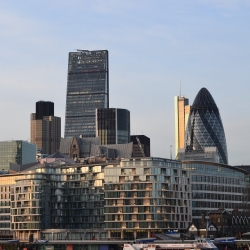 There was a spring in the step of the central London office market in Q2 2021 with more businesses committing to new office space, as plans to return to workplaces took shape. Research by DeVono Cresa claims that just over 1.98 million sq ft was transacted, representing an upturn of 21 percent on the previous quarter and the highest quarterly total since the outbreak of the pandemic. (more…)
There was a spring in the step of the central London office market in Q2 2021 with more businesses committing to new office space, as plans to return to workplaces took shape. Research by DeVono Cresa claims that just over 1.98 million sq ft was transacted, representing an upturn of 21 percent on the previous quarter and the highest quarterly total since the outbreak of the pandemic. (more…)






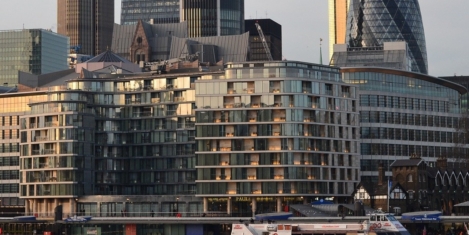



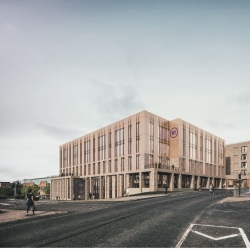 There has been a further improvement in sentiment across the global corporate real estate market, according to the latest
There has been a further improvement in sentiment across the global corporate real estate market, according to the latest 
 The removal of most Covid restrictions in the UK has increased calls for clearer practical guidance and the setting of specific indoor air quality (IAQ) contaminant targets to support the health and wellbeing of building occupants. The Building Engineering Services Association (BESA) has, therefore, produced a concise guide to good practice:
The removal of most Covid restrictions in the UK has increased calls for clearer practical guidance and the setting of specific indoor air quality (IAQ) contaminant targets to support the health and wellbeing of building occupants. The Building Engineering Services Association (BESA) has, therefore, produced a concise guide to good practice: 
 Technology is now integral for short and long-term employee wellbeing following the dramatic changes to working life caused by the COVID-19 pandemic, according to Thomas Woods, Vice-President of Enterprise for
Technology is now integral for short and long-term employee wellbeing following the dramatic changes to working life caused by the COVID-19 pandemic, according to Thomas Woods, Vice-President of Enterprise for 


 New research commissioned by
New research commissioned by 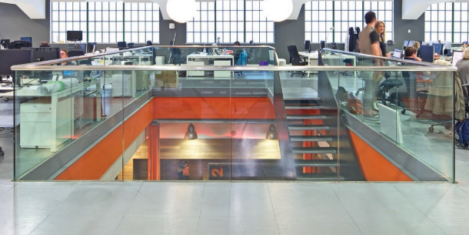
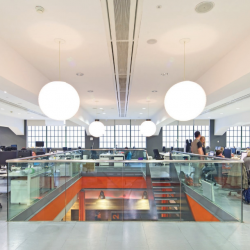

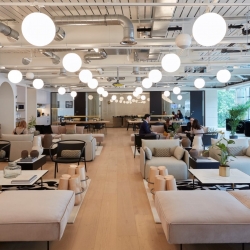 As businesses return to their offices they are faced with a challenge – how do they reappraise their space requirements post-Covid? Social and technological advancements are changing real estate from being a fixed physical product, into flexible, employee-centric spaces that enable new models of hybrid working and business operations. These have a significant impact on the ways that businesses work and the options available to them.
As businesses return to their offices they are faced with a challenge – how do they reappraise their space requirements post-Covid? Social and technological advancements are changing real estate from being a fixed physical product, into flexible, employee-centric spaces that enable new models of hybrid working and business operations. These have a significant impact on the ways that businesses work and the options available to them. 
 Egress’
Egress’ 
 Organisational purpose, responsible business practices and diversity are growing in importance at Board level and for HR teams, as employers make the connection between good environmental, societal and governance practices and business growth, according to survey findings from the Reward & Employee Benefits Association (
Organisational purpose, responsible business practices and diversity are growing in importance at Board level and for HR teams, as employers make the connection between good environmental, societal and governance practices and business growth, according to survey findings from the Reward & Employee Benefits Association (








July 15, 2021
The weird science of personal creativity
by Robin Bayliss • Comment, Wellbeing, Workplace design